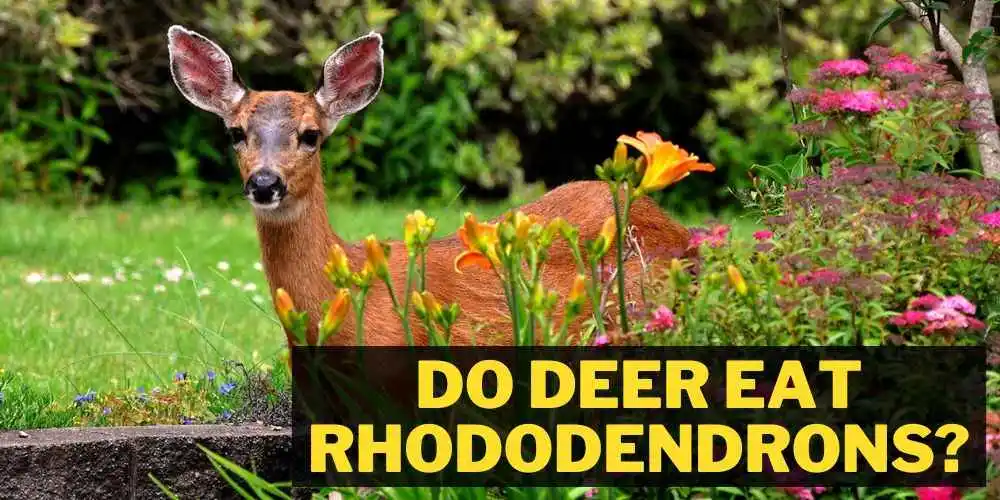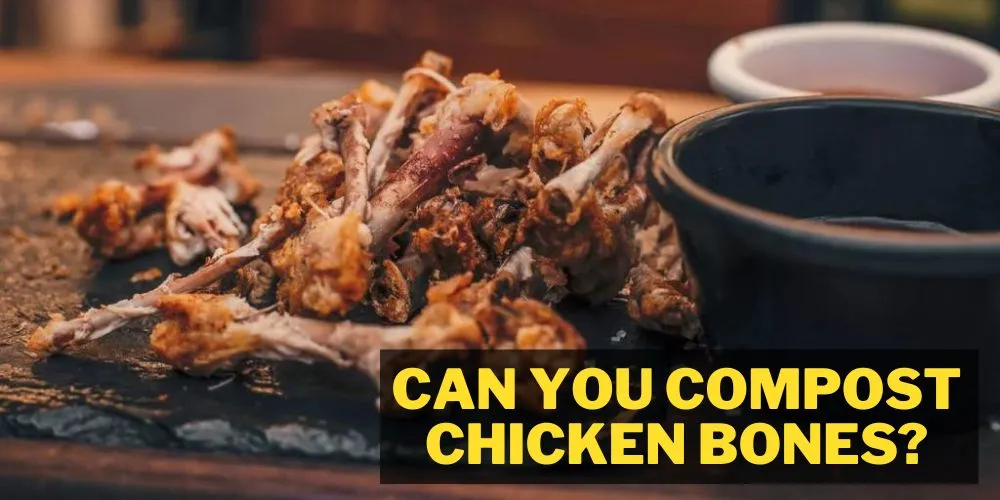Gardening enthusiasts and homeowners often ask, “Do deer eat impatiens?” As one of the most popular flowering plants for gardens and landscaping, impatiens are renowned for their vibrant colors and ability to thrive in shady areas. But as beautiful as they are, gardeners must contend with the notorious appetites of deer and other wildlife that might find these flowering plants just as attractive.
In this article, I will discuss the dynamics between deer and impatiens, exploring whether these elegant garden staples are safe from the voracious herbivores. We will also provide insights into deer-resistant plants and strategies for safeguarding your garden and cherished flowers. So, without further ado, let’s uncover the mystery behind deer and their affinity (or lack thereof) for impatiens.
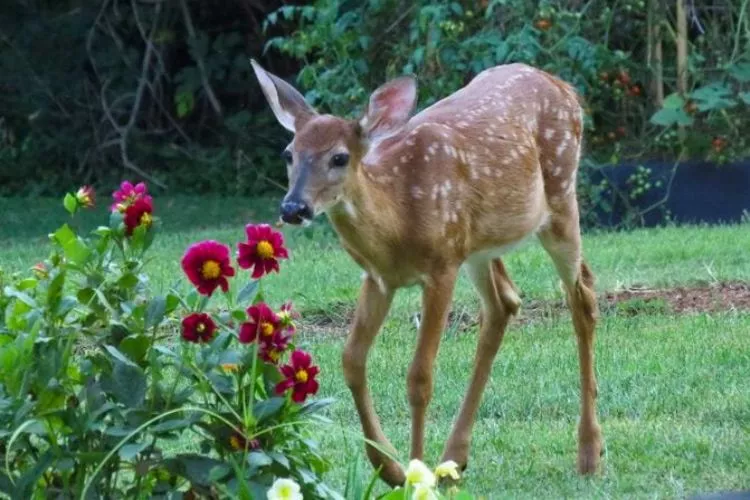
Do deer eat impatiens?
Yes, deer do eat impatiens. Though they might not be the deer’s primary choice when browsing in a garden, these animals are generally not deterred by the presence of impatiens plants. Deer have a wide-ranging diet and will consume various flowers, plants, and even trees depending on the availability of food sources and preferences.
While impatiens may not be at the top of their list, they will consume them if other food sources are scarce or find them particularly palatable. Therefore, gardeners and homeowners must be aware of this and plan accordingly when designing landscapes and gardens prone to deer activities.
Will Impatiens Come Back After Deer Eat Them?
Impatiens are known for their resilience, and they can generally recover after being eaten by deer. When deer consume the blooms, buds, leaves, and stems of impatiens, the damage can be significant due to their large appetite. However, impatiens are still capable of making a comeback.
If the plant remains intact, impatiens can grow back and produce more flowers. Consider applying deer repellents such as Liquid Fence to safeguard your plants and prevent further damage. Keep in mind that it is essential to monitor the health of your impatiens throughout the growing season and provide them with appropriate care, including adequate water, fertilizer, and sunlight.
In conclusion, impatiens have the potential to recover after being eaten by deer. However, taking preventive measures and properly caring for your plants is crucial to ensure they continue to thrive.
How do I stop deer from eating my impatiens?
Protecting your impatiens from hungry deer can be challenging, but several effective strategies help keep your plants intact. Implementing these methods can ensure that your garden remains deer-resistant and full of beautiful blooms.
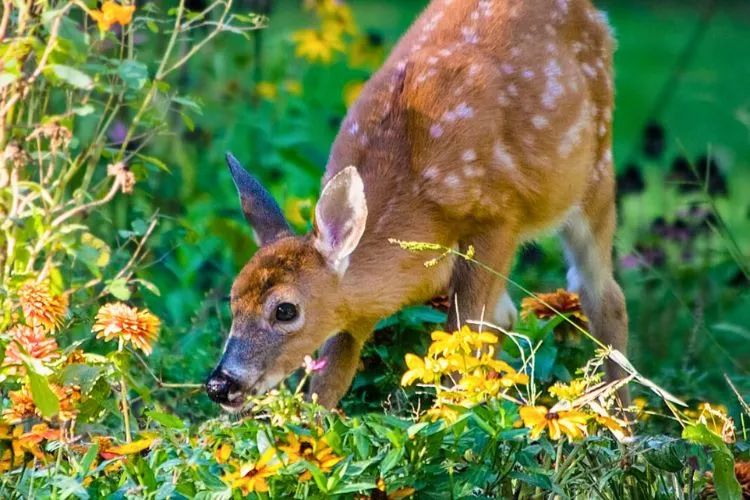
Fencing and Barriers
- Install deer fencing: A 7-8 foot tall deer fence is one of the most effective methods for keeping deer out of your garden. Choose sturdy, durable materials, and ensure the fence is deeply rooted to prevent deer from crawling underneath.
- Construct a double fence: If aesthetic concerns make a tall fence unappealing, consider installing two 4-foot tall fences spaced 4 feet apart. The distance and height combination can deter deer from jumping across.
Repellents and Deterrents
- Use deer repellent sprays: When applied regularly, deer repellent sprays that contain capsaicin, putrescent egg solids, or garlic extracts can help keep deer away. Follow the product instructions for optimal protection.
- Employ noise or motion-activated deterrents: Devices that produce noise or sudden movements can startle and scare off deer. Install motion-activated sprinklers or ultrasonic repellers around your garden to create an unwelcoming environment.
Deer-Resistant Landscaping
- Plant deer-resistant flowers: While deer may eat impatiens in certain circumstances, they prefer other plants. Surround your impatiens with less palatable plants like lavender, Russian sage, or yarrow to deter deer.
- Implement strategic planting: Plant your impatiens near your home or patio. Deer usually prefer to avoid areas with high human activity, which will provide additional protection for your flowers.
Using these strategies, you can effectively discourage deer from eating your impatiens and maintain a vibrant, beautiful garden.
Will deer eat New Guinea Impatiens?
Yes, deer may eat New Guinea Impatiens. Deer are known for their diverse diet, and while they may have preferences, they can consume a wide variety of plants, including impatiens. Like other impatiens, New Guinea Impatiens species are not generally at the top of the deer’s list of food choices.
However, if other food options are limited or if they find the taste of New Guinea Impatiens appealing, deer will consume them. Gardeners and homeowners growing New Guinea Impatiens in areas with frequent deer activity should take preventive measures such as fencing and using deer repellents to protect their plants from becoming a part of the deer’s diet.
Which impatiens are deer resistant?
When it comes to finding deer-resistant impatiens, the options are quite limited. Generally, impatiens are not considered to be particularly resistant to deer. However, some strategies can make them less attractive to deer or protect them from damage. Below is a discussion of deer-resistant alternatives and tactics to create a more deer-proof garden.
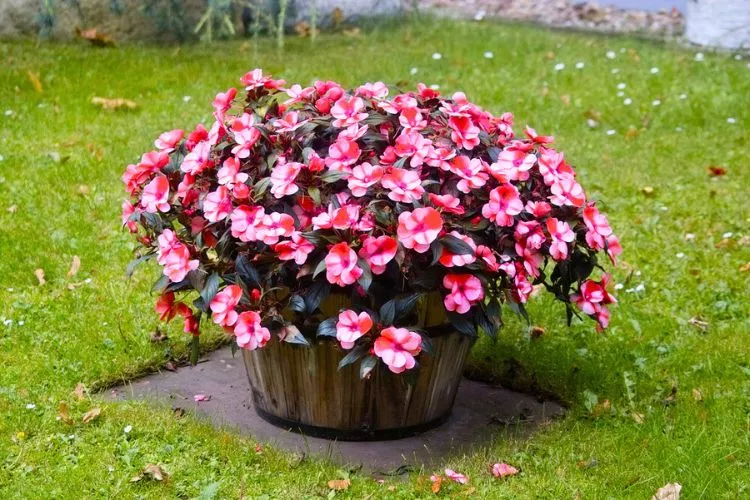
Alternatives to Impatiens
While impatiens themselves may not be deer-resistant, several alternative plants are known to be less appealing to deer, which can be used in combination with impatiens or as substitutes:
- Marigolds: Marigolds are vibrant flowers with a strong scent that can deter deer from browsing nearby plants.
- Geraniums: Deer typically avoid geraniums due to their strong fragrance, making them a useful addition to the garden.
Plant Combinations and Techniques
Implementing specific combinations and planting techniques can help make your impatiens less attractive to deer:
- Strategic placement of impatiens: Planting impatiens close to your home or high-traffic areas can help deter deer, as they are likely to avoid areas with frequent human activity.
- Surrounding impatiens with deer-resistant plants: Interplanting less palatable plants like lavender, Russian sage, or yarrow with your impatiens can create a protective barrier and help reduce the temptation for deer.
In conclusion, while no specific impatiens are naturally deer-resistant, using alternative plants or employing strategic planting techniques can help reduce the chances of deer damage to your impatiens.
What Other Animals Eat Impatiens?
Various animals and insects are known to eat impatiens. Among animals, deer, rabbits, rats, chipmunks, raccoons, and opossums have been observed eating impatiens. Insects such as spider mites, weevils, slugs, aphids, and thrips feed on impatiens. It is important to monitor your impatience and implement protection measures to prevent damage from these creatures.
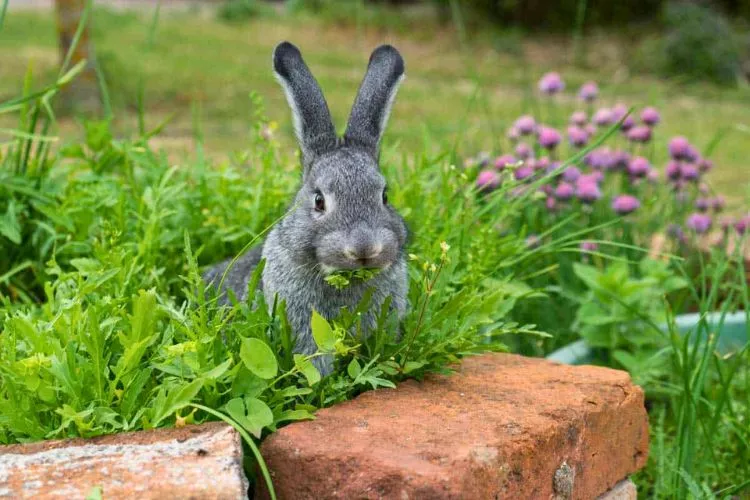
You may also find helpful: Do Deer Eat Dahlias? | Do Deer Eat Hollyhocks? | Do Deer Eat Rhododendrons?
Frequently Asked Questions (FAQs)
Where not to plant impatiens?
Avoid planting impatiens in full sun exposure and areas with cold soil. Impatiens thrive best in partial to full shade and need soil temperatures of at least 60 degrees Fahrenheit to grow well.
What is the best homemade deer repellent?
The best homemade deer repellent recipe uses eggs, water, garlic, and hot pepper. Combine 4 beaten eggs, 2 cups of water, 2 minced cloves of garlic, and 2 tablespoons of hot pepper sauce, mix well, and let sit for 24 hours. Spray the mixture onto plants to deter deer.
Do dryer sheets keep deer away?
While some sources claim that the scent of dryer sheets can repel deer, their effectiveness is anecdotal. It is better to use deer repellents designed specifically for this purpose or employ fencing and other proven deer deterrents.
Do coffee grounds keep deer away?
Coffee grounds may help to deter deer due to their strong odor, but their effectiveness is limited and inconsistent. Use coffee grounds as a part of a more comprehensive deer control strategy, including repellents, fencing, and deer-resistant plants.
Conclusion:
If you are wondering do deer eat impatiens or not, I can say deer are not particularly attracted to impatiens, they may still consume them if other food sources are scarce or unavailable. It is essential to employ preventive measures such as fencing, deer repellents, and strategic planting techniques to protect impatiens from becoming part of the deer’s diet. By implementing a comprehensive approach that combines protection methods and deer-resistant plants, gardeners can effectively reduce the chances of deer feeding on impatiens and maintain a thriving, vibrant garden.

